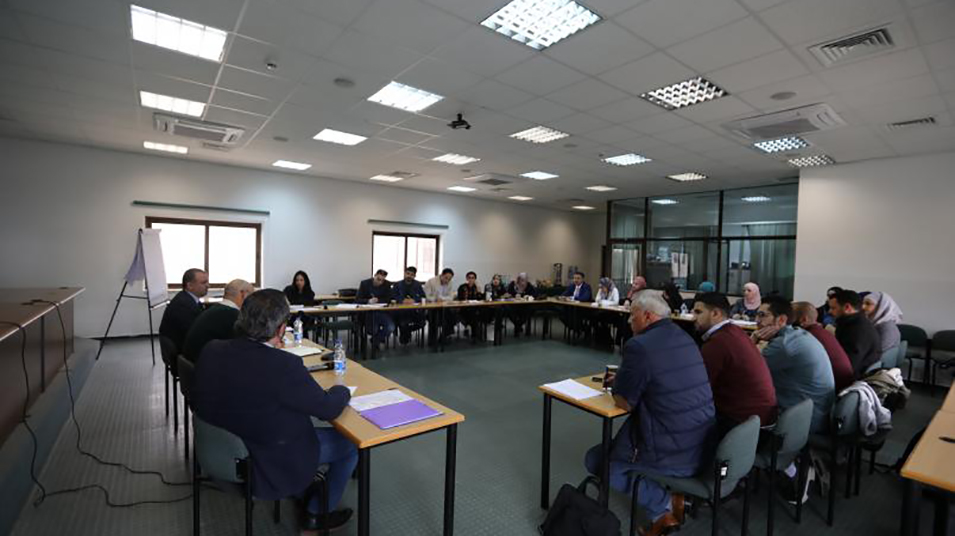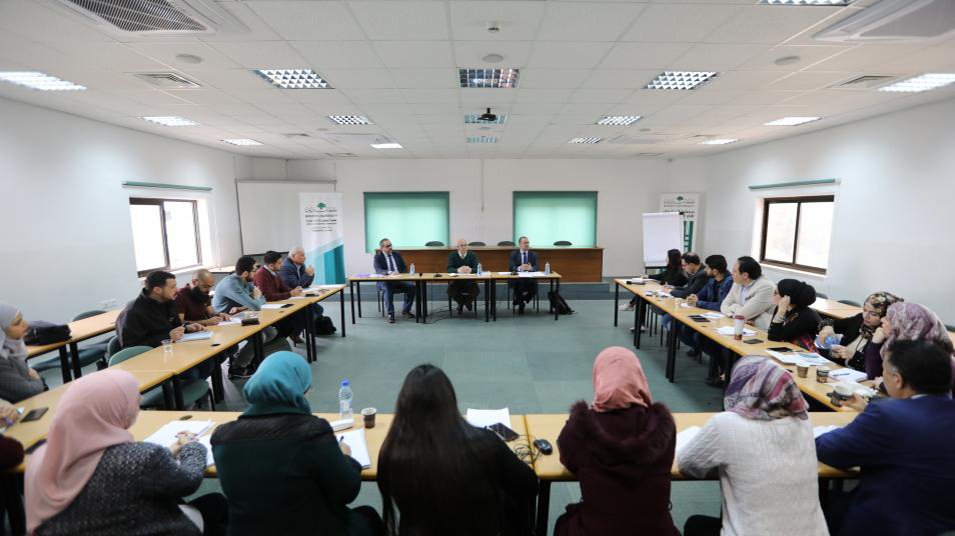Comparative law students, promising researchers discuss role of executive branch in Palestine
Students enrolled in the comparative public law course joined members of the Promising Researchers group to examine the role of the executive branch of Palestine’s government in a seminar organized by the Constitutional Law Unit of the Faculty of Law and Public Administration at Birzeit University on Saturday, April 6, 2019.
Ali Jarbawi − currently director of the master’s program in international studies at Birzeit University and previously a Palestinian minister of planning and minister of education and higher education – opened the seminar by discussing the impact of the Oslo Accords on the functioning of the Palestinian government. He also debated the challenges that the executive branch faces, which include a lack of funding and the internal political division.
Jarbawi reviewed the steps that the Palestinian government may take to mitigate the negative effects of these challenges, explaining that the Palestinian administration may dissolve itself − a solution that would bring no real changes, Jarbawi said − or that it may choose to implement reforms in a number of sectors.
Asem Khalil, a professor of comparative public law, explored the extent to which the Palestinian government can help in establishing an independent Palestinian state and examined the role of sound local governance in securing the government’s future.
Khalil furthermore discussed the influence of donors and foreign aid in setting and applying laws and policies in Palestine and considered the role of the judiciary branch in providing oversight over the government’s decisions.
Rashad Twam, coordinator of the Constitutional Law Unit, fielded questions from the attending students who discussed the readiness of the government for the establishment of a Palestinian state, the impact of the proliferation of credit facilities on the Palestinian people’s resistance, and the looming deal of the century.









